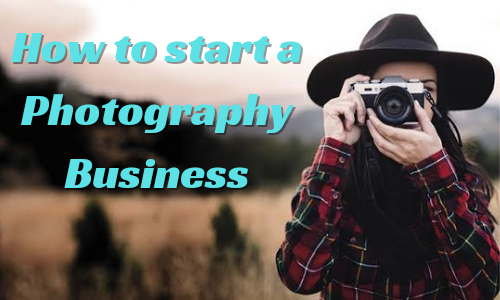Introduction:
how to start a photography business |
|
Starting out to launch your own photography business may be a wonderful and successful undertaking. This guide will assist you in navigating the essential stages to effectively establish your photography business, regardless of whether you’re an experienced photographer ready to go solo or a passionate hobbyist hoping to turn your love for photography into a career.
1. Define Your Niche:
Find your niche in the large field of photography before getting too caught up in the business end of things. primarily in a certain area of photography, such as nature, commercial, wedding, or portraiture, will help you stand out from the competitors and help you reach the right target market.
2. Create a Business Plan:
Create a thorough business strategy for your photography business just like you would any other type of business. Your target market, price strategy, financial estimates, and marketing plan should all be included in this. A carefully considered plan will direct your decisions and act as a road map for your company.
3. Legal Considerations:
Make sure you follow all local laws regarding the establishment of businesses. Incorporate your company, secure any required licenses or permissions, and investigate your insurance alternatives. You must take this action to safeguard both yourself and your clients.
4. Invest in Quality Gear:
Invest in excellent accessories and camera gear that complement your area of interest in photography. Even while it may be tempting to go all out, as your firm expands, progressively expand your gear by starting with the necessities.
5. Build an Online Presence:
To connect with potential customers, you must have an online presence. Make a professional website with your services, prices, portfolio, and phone number listed. Share your work and interact with those who follow you on social media sites such as Facebook and Instagram.
6. Networking and Collaboration:
Participate in community events, affiliate with photographic associations, and collaborate with other industry experts. Establishing relationships, receiving recommendations, and learning about market trends can all be done through networking.
7. Set Your Pricing:
Conduct industry research and choose a price for what you offer that is both competitive and profitable. Check about things like the demand in your area, the price of the supplies, or your skill level. If you want to gain the trust of prospective customers, be open and honest about your pricing on your website.
8. Develop a Unique Selling Proposition (USP):
Identify what distinguishes your photography business. Whether it’s a unique style, a customized strategy, or cutting-edge services, having a USP will help you stand out in the eyes of your customers.
9. Offer Exceptional Customer Service:
Offering excellent customer support is essential to a successful photography business. Be professional in all of your interactions, answer questions right away, and go above and beyond to satisfy your clients.
10. Market Your Business:
Create a marketing plan to connect with your intended market. Make use of social media, SEO, and conventional advertising techniques, among other online and offline platforms. The secret to increasing brand awareness is consistency.
Conclusion:
Starting a photography business takes a combination of perseverance, creativity, and commercial sense. You’ll have no trouble starting a profitable photography business if you adhere to these guidelines and keep improving as a photographer. Remember, a strong entrepreneurial spirit, skill, and passion are frequently the keys to success in the photography industry. I wish you well on your fascinating voyage!

Pingback: How To Plan A Trip To Europe - RAZABLOGS.COM